Commentary: I was the daughter my parents didn’t keep
When Charlotte Cotter was abandoned as an infant on the steps of a building in China, she became part of a staggering statistic. This is her story.
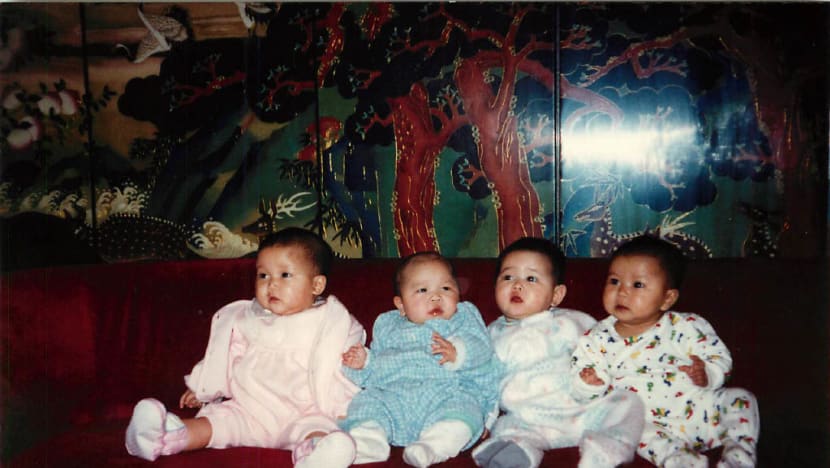
Charlotte Cotter (second from left) as a baby in Guangzhou in January 1995. (Photo: Charlotte Cotter)

This audio is generated by an AI tool.
CAMBRIDGE, Massachusetts: When China commenced its international adoption programme in 1992, the majority of its abandoned children were infant girls. Many were left on the streets, in train stations, or at the doorsteps of orphanages by their parents, some with a 100 yuan note (US$14) or a packet of milk powder tucked in their clothes.
I was one of them. I was left on the steps of 315 Nanmen Avenue in the Jingkou district of Zhenjiang city in Jiangsu province with a small handwritten note with the date and time of my birth. A passerby found me on those steps, and the police took me to the local social welfare institute.
In many ways, I was one of the lucky ones. I was adopted by an American couple at five months old and enjoyed a very happy childhood with my parents and my sister (later adopted from China, but from a different province) in the suburbs of Boston, Massachusetts.
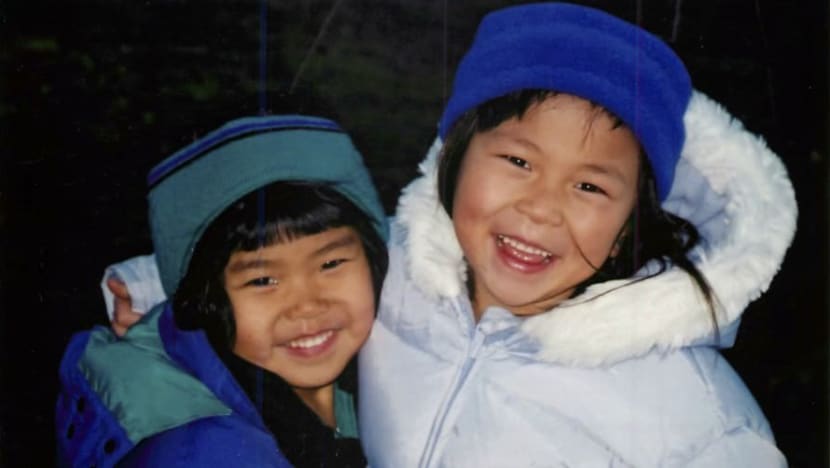
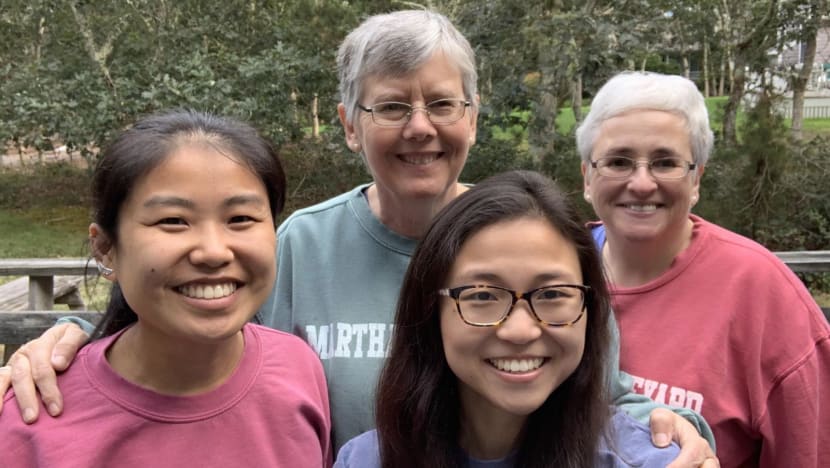
THE SEARCH FOR MY BIOLOGICAL PARENTS
From a young age, my mums encouraged my sister and me to learn about Chinese culture and language, and we celebrated Chinese holidays like Lunar New Year. My early exposure to Chinese language and culture inspired an active interest in learning Chinese, which ultimately led me to major in East Asian Studies at university, focusing on Modern Chinese history.
I was also fortunate to travel frequently to China - once with my family, during which we visited the orphanages my sister and I had spent our earliest days at; and multiple trips through various educational programmes.
In June 2016, with the support of my family, I decided to search for my biological family. Although I had always been told that the chances of finding them were very low, I still harboured a deep curiosity about my roots, whether I looked like my biological relatives, and the circumstances surrounding my abandonment.
That June, a fellow Chinese adoptee and I launched our search on social media for our respective biological relatives, creating a poster and encouraging friends to help us share it widely on WeChat and on Weibo. We planned to travel to China the next month, in July, to search on the ground.
A 5AM WECHAT MESSAGE
About a week after we shared the poster, but before we left for China, I received a 5am WeChat message from a local reporter, asking if I wanted to have a video call with my biological parents. “We found them with 99 percent certainty,” she said.
Unbeknownst to me, this local reporter had taken it upon herself to do a little bit of digging on her own. She had visited my social welfare institute and viewed my file, where she noticed a little scrap of paper attached to the note stating my birth date and time. It turned out that someone had scribbled a record of a vaccine and the name of a local hospital.
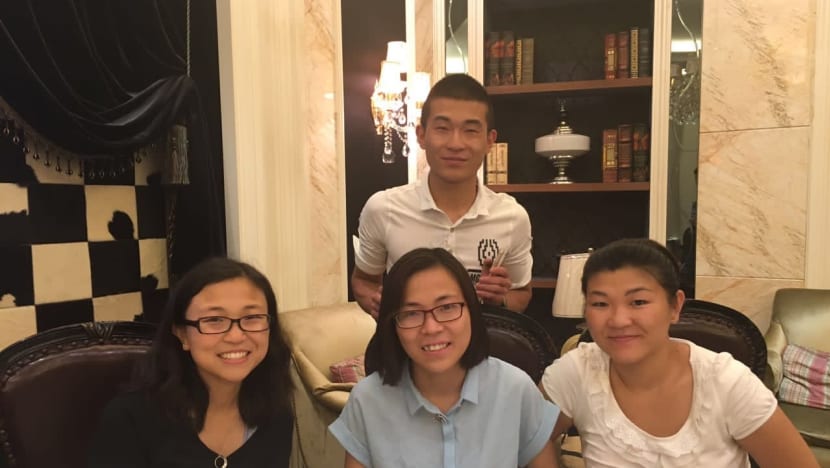
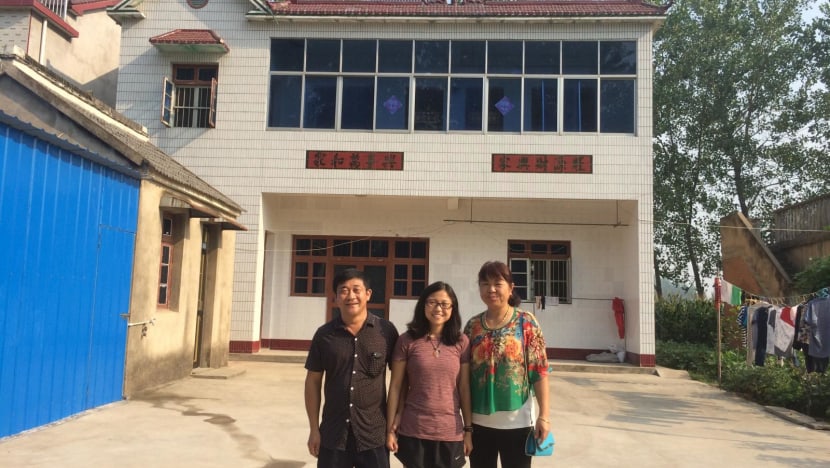
With these clues, she was able to track down the address of a couple whom she thought could be my birth parents and paid them a visit. In speaking with them, it quickly became clear that these people were very probably the couple she was looking for.
However, it came as quite a shock to me, as this call was the first time I had learned about it.
During our call, I learned that the couple had already had two daughters in 1994 when their third child, another girl, was born.
According to the family planning policies - which allowed rural parents to have a second child if their first was female - this third daughter was “illegal”. Families who violated the policy faced hefty fines and difficulty finding a job.
The couple were living in a mud-hut at the time with nowhere near enough money to feed that many mouths, and they wanted a boy. A boy would allow them to pass on their family name, would provide more hands for manual labour, and, once married, would not leave the family the same way a girl traditionally would.
The couple hoped that in later life, they could rely on a son to take care of them. Most importantly, a boy meant being freed from the social stigma of being a family without a son.
So, they gave their third daughter up, arranging to pass her through an intermediary (or so they thought) to a wealthy military family.
A year later, almost exactly to the day, they got the boy they wanted. They never gave their third daughter - me - a name.
TRAVELLING TO CHINA
Several weeks after the video call, I travelled to Zhenjiang city to visit the couple.
After a tearful if awkward reunion, I was able to get many of my questions answered. My biological parents apologised for abandoning me back then, but from my point of view, there was nothing to forgive.
I marvelled at how, for the first time, I saw my features reflected on someone else: My mother’s calves, my father’s ears, my sister’s hands.
One moment in my searching journey stands out for me. At one point, we were all sitting in the house of my biological father’s eldest brother - our family patriarch and my paternal uncle.
My biological brother was leaning off the faux leather couch dangling a smoke in his hand. My cousin (my paternal uncle’s daughter) wore a chic pixie haircut and designer clothing. She looked at my brother for a moment, then gazed at me, and said to him, “Isn’t it funny? You’ve changed someone’s entire fate.” He shifted his eyes away, laughing awkwardly.
In that moment, I did somehow see my life intertwined with his. We were both born with the hope of being a son. It was just that one of us was, and one of us wasn’t. And in the circumstances we found ourselves, that made all of the difference.
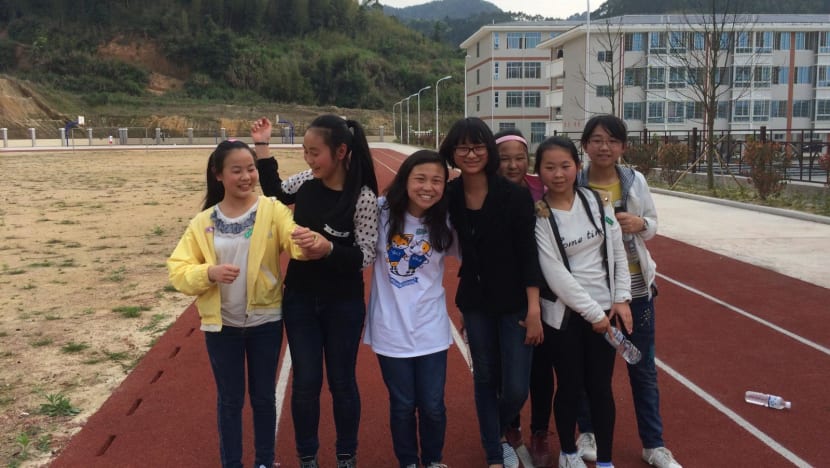
MY STORY IS ONLY ONE AMONG MANY
More than 160,000 children from China have been adopted by families across the globe in the last three decades, with the US accounting for about half of those adoptions.
But my story is only that - my own. I cannot, nor do I purport to, tell “the Chinese adoptee story”. This is because there are as many Chinese adoptee stories as there are individuals.
This is one of the most important things I learned when I co-founded China’s Children International, a nonprofit organisation, to connect and empower Chinese adoptees from all over the world with my friend and fellow adoptee, Laney Allison, in 2011. Our organisation aims to provide a supportive community for Chinese adult adoptees to aid in identity formation and help them find a sense of belonging.
Adoption is a lifelong journey and being an adoptee is a lifelong identity. It doesn’t end when an abandoned or orphaned child is placed in the arms of their adoptive parents. It doesn’t become history when an adoptee turns 18. Even if an adoptee finds their biological relatives, it doesn’t somehow bring closure in the way many may expect.
And, importantly, it doesn’t end just because China has halted international adoptions. There are still thousands of adoptees around the world continuing to live out its implications, be they positive or negative or a mix of both.
What is most important for us is to listen to those who have been directly impacted by international adoption.
Over time, these myriad voices will help us build a better understanding of the complex legacy of China’s international adoption programme, honouring the experiences of the birth parents who were forced to give up their children, the adopting parents who flew halfway across the world to adopt them, and the adoptees themselves, whose story is ultimately theirs to tell.
Charlotte Cotter was adopted from China at five months old. She is also the co-founder of China’s Children International, a nonprofit organisation that connects Chinese adoptees around the world. She studied East Asian Studies, focusing on Modern Chinese history, at Yale University and is fluent in Mandarin.

















